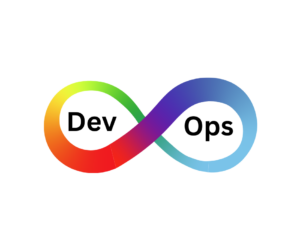The “ECONNRESET” error read in Azure DevOps typically indicates a “Connection Reset by Peer” issue. Read the article to know more about the troubleshooting steps. As part of our DevOps Consulting Service, Bobcares provides answers to all of your questions.
Overview
- The “ECONNRESET” error in Azure DevOps
- Common Causes of “ECONNRESET” in Azure DevOps
- Diagnosing and Troubleshooting ECONNRESET in Azure DevOps
- Conclusion
The “ECONNRESET” error in Azure DevOps
The “ECONNRESET” error in Azure DevOps typically indicates a “Connection Reset by Peer” issue. This error signifies that a network connection was unexpectedly closed or interrupted by the other party, such as a server or another network component. In this article, we will explore what “ECONNRESET” means, common causes of the error in Azure DevOps, and how to diagnose and troubleshoot the issue effectively.

What is “ECONNRESET”?
The term “ECONNRESET” is a standard network error code that arises from low-level network operations, particularly within the TCP/IP stack. It indicates that one side of a network connection has forcibly closed the connection. This can occur due to several reasons, such as:
- The remote server resets the connection.
- Network conditions, such as a timeout or failure in the underlying connection, lead to an unexpected drop.
In the context of Azure DevOps, this error can surface when interacting with Azure services or when agents are executing jobs that involve network communication. Common tasks during which this error may be encountered include:
- Fetching from a Git repository.
- Pushing code changes to a remote repository.
- Downloading or uploading artifacts.
- Running pipelines that involve external dependencies.
Common Causes of “ECONNRESET” in Azure DevOps
Understanding the root causes of the “ECONNRESET” error is crucial for effective troubleshooting. Here are some common factors that contribute to this error in Azure DevOps:
1. Network Connectivity Issues
One of the most prevalent causes of the ECONNRESET error is unstable network conditions. If there are interruptions in the network between your DevOps agent (or environment) and Azure services (or any external services), the error may occur. Other factors that could cause disconnections include:
Firewalls: Strict firewall rules may block or interrupt connections to Azure services.
Proxy Settings: Misconfigured proxy settings can prevent the Azure DevOps agents from maintaining stable connections.
VPN Connections: Using a VPN may introduce latency or instability, leading to connection resets.
2. Timeouts or Large Requests
When tasks such as builds, fetches, or deploy operations take too long, Azure DevOps or the underlying services may terminate the connection, resulting in an ECONNRESET error.
3. Agent Issues
The build or release agent running the pipeline may experience intermittent connectivity problems or configuration issues. Misconfigured self-hosted agents might encounter:
Proxy Issues: Inconsistent proxy configurations can disrupt connections.
DNS Problems: Faulty DNS settings may prevent the agent from resolving the required service endpoints.
4. External Service Dependencies
Pipelines often interact with external APIs, databases, or third-party services. If these services experience downtime or connection instability, Azure DevOps may receive an ECONNRESET error from them.
Diagnosing and Troubleshooting ECONNRESET in Azure DevOps
When we encounter the ECONNRESET error in Azure DevOps, consider the following steps for effective diagnosis and troubleshooting:
1. Review Network Logs: Examine the network logs or firewall settings to identify any interruptions or blocks that may be causing the connection to drop. If we’re using self-hosted agents, ensure they have proper access to Azure DevOps services by whitelisting required IP ranges and URLs.
2. Check Pipeline Logs: Review the pipeline or build logs in Azure DevOps for more detailed information about the error. The logs can provide valuable insights into which step or service was involved when the connection reset occurred.
3. Implement a Retry Mechanism: If possible, incorporate retry logic for specific tasks that may fail due to transient network errors. This approach can help mitigate the impact of intermittent connectivity issues.
4. Optimize Network and Resource Usage: If the pipelines involve large file transfers, consider optimizing them by:
- Using shallow clones (–depth=1) to minimize the amount of data being transferred.
- Caching dependencies between pipeline runs to avoid repeatedly downloading large artifacts.
5. Monitor Service Health: Keep track of Azure DevOps Service Health via the Azure Status page. Monitoring service health can help identify ongoing issues that might contribute to connection reset errors.
6. Check Proxy and DNS Configuration: For self-hosted agents, verify that the proxy settings are correctly configured. Azure DevOps agents must access specific Azure endpoints, and a misconfigured proxy can result in connection resets. Additionally, ensure that DNS resolution is functioning properly, especially if the error occurs frequently with external services.
[Searching solution for a different question? We’re happy to help.]
Conclusion
The “ECONNRESET” error read in Azure DevOps can disrupt the development and deployment processes, but understanding its causes and implementing effective troubleshooting measures can help resolve the issue quickly. By examining network connectivity, reviewing logs, optimizing resource usage, and monitoring service health, we can minimize the impact of this error on the workflows. Proper configuration of agents and network settings is also crucial to ensure stable connections with Azure services. By following these best practices from our Techs, we can maintain a smoother and more reliable experience while using Azure DevOps for the projects.







0 Comments